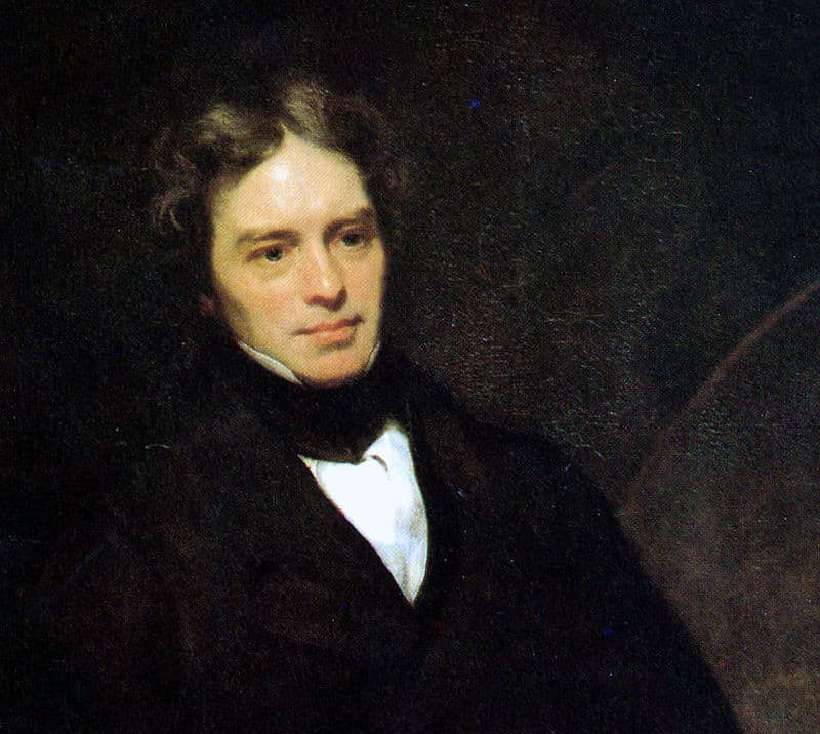Michael Farday: The Self-Educated Inventor
Home / Non Fiction for Kids / Biographies for Kids / Michael Farday: The Self-Educated Inventor
Michael Faraday (1791 - 1867)
Is it possible to become one of the most influential scientists in history without a formal education? In the case of Michael Faraday, the answer would be an absolute yes. Our world is full of big and small electric motors. And we owe Faraday for discovering the principles of electromagnetism that led to the first electric motor.
Faraday’s main contributions were within the study of electromagnetism and the relationship between electricity and chemical change. His work helped develop the generators we use today. He also devised the commercial process of separating elements from their ores, such as iron. Faraday named this process electrolysis. Without him, the use of electricity in technology would have been severely delayed.
Michael Faraday was born on 22 September 1791 in Surrey, England. His father was the assistant to a blacksmith but was able to provide Faraday with a basic education. From there on, Faraday had to educate himself. At the age of 14 he became an apprentice to a bookseller. During his seven years as an apprentice, he read as many books as he could. This ended in a passionate desire to learn more about electricity.

The first true opportunity Faraday got was from the English chemist Humphrey Davy. Faraday had been gifted tickets to his lectures. He wrote a 300-page book from the notes he had taken and sent it to Davy. Although no one had ever heard of Faraday, Davy was compassionate. They discussed many things over letters and eventually, Davy hired Faraday as his assistant. Faraday seized this opportunity and achieved his greatest accomplishments while working with Davy.
Faraday’s earliest discoveries were in the field of chemistry. He discovered two compounds of chlorine and carbon. He studied the diffusion of gases, successfully liquified many gases, and created a new type of glass for optical purposes. During his early years with Davy, he also created the Bunsen Burner and discovered electrolysis. Both of them are used in Chemistry and industry today.
Although his mentor, Davy, had discovered Electromagnetism, he had failed to create a electric motor. Faraday succeeded but failed to acknowledge the contributions of his mentor. This heavily strained their relationship. Faraday continued his study of electromagnetism. He found that if he moved a magnet through a loop of wire, an electric current flowed in that wire. This became known as Faraday’s Law. Faraday used it to create the first dynamo, the ancestor to the electric motors and generators we use today.
Faraday’s work helped him gain various titles and awards. He was even offered a knighthood. However, he turned it down due to his religious devotion, He believed that it was against the word of the Bible to gather riches and rewards, stating that he preferred to remain “plain Mr. Faraday to the end”. Yet history cannot uphold his wish. Electricity is such a fundamental part of our lives. It remains available due to the contribution of Michael Faraday. Without a doubt, he is one of the greatest scientists in history. One only has to look across England to see the statues, memorials, gardens, schools, and streets that are named in his honor.
Born: 22 September 1791, London, England
Died: 25 August 1867, London, England
Education: Self-educated and apprentice to Humphrey Davy (1812 - 1832)
Major contribution: Electromagnetism, electric generators, chemical compounds, electrolysis.
More about Michael Faraday
566 words |
5 minutes
Readability:
Grade 9 (14-15 year old children)
Based on Flesch–Kincaid readability scores
Filed under: biographies
Tags: #biographies of scientists, #chemistry, #electrolysis, #electromagnetism, #generators
You may also be interested in these:
Buckminster Fuller: A Scholar, a Scientist and an Inventor
Louis Pasteur: The man who discovered vaccination
Maria Curie: The only scientist to win a Nobel prize twice
Galileo Galilei: The Italian who figured that planets revolve around the sun
Nikola Tesla – Unsung Prophet of Electrical Age